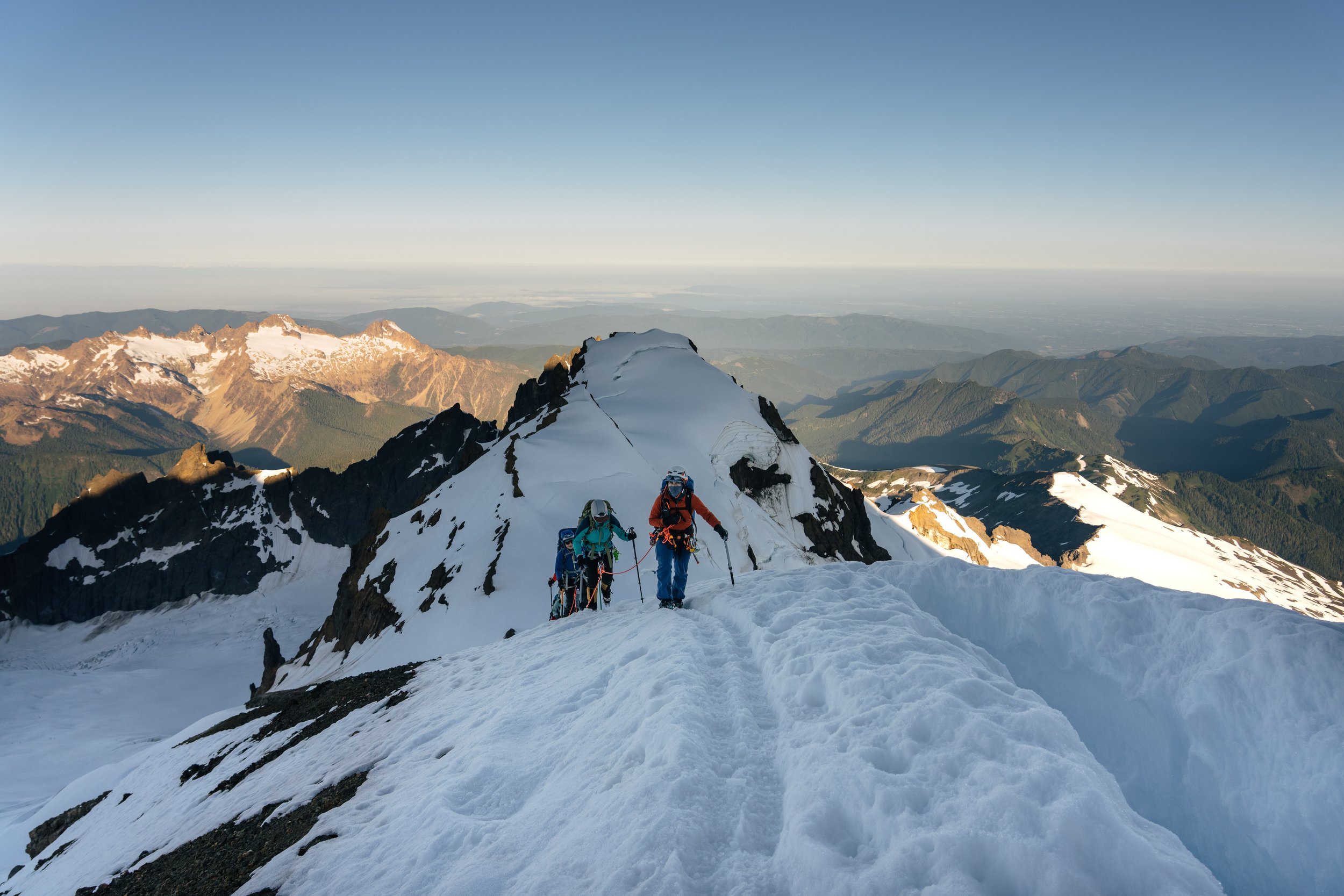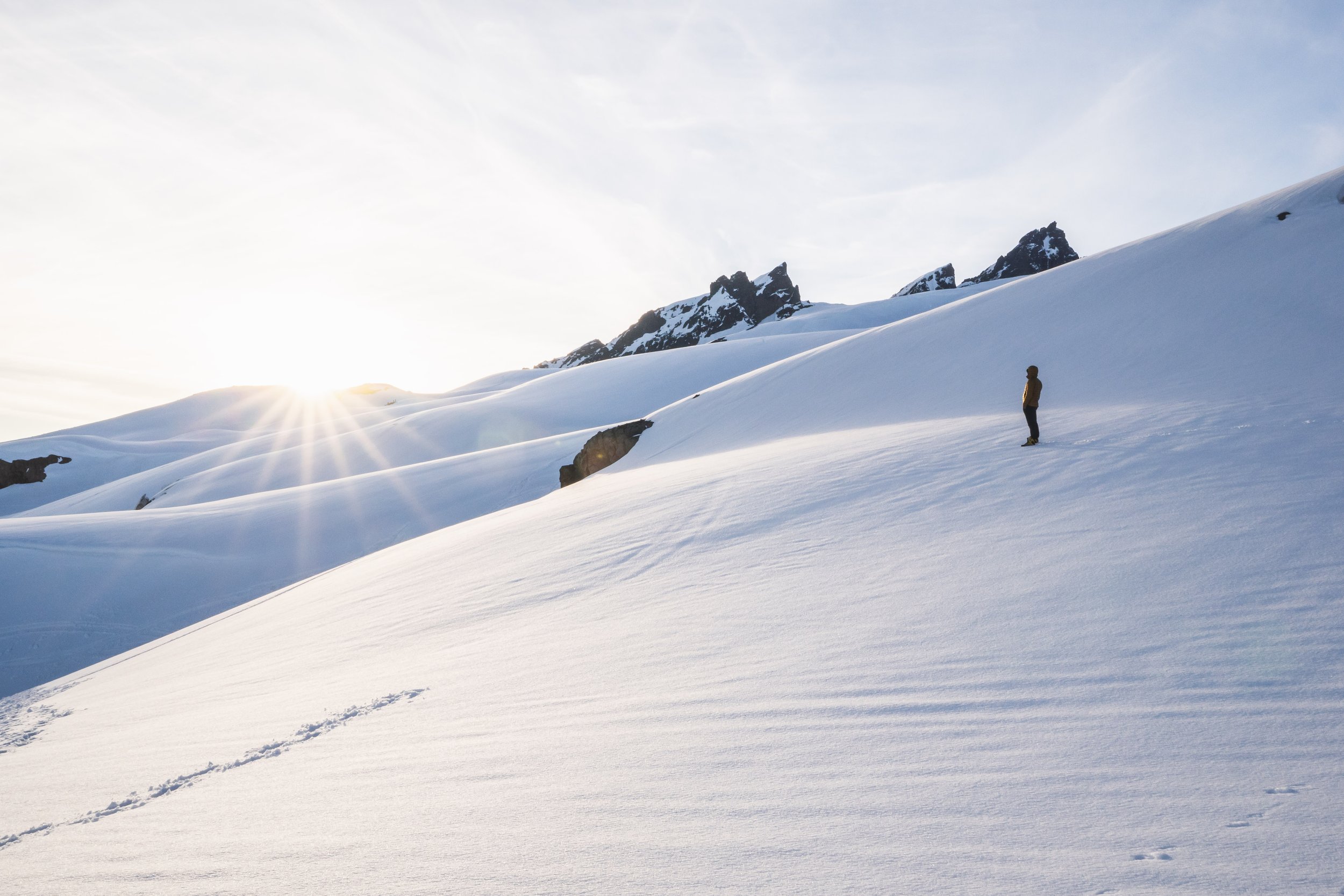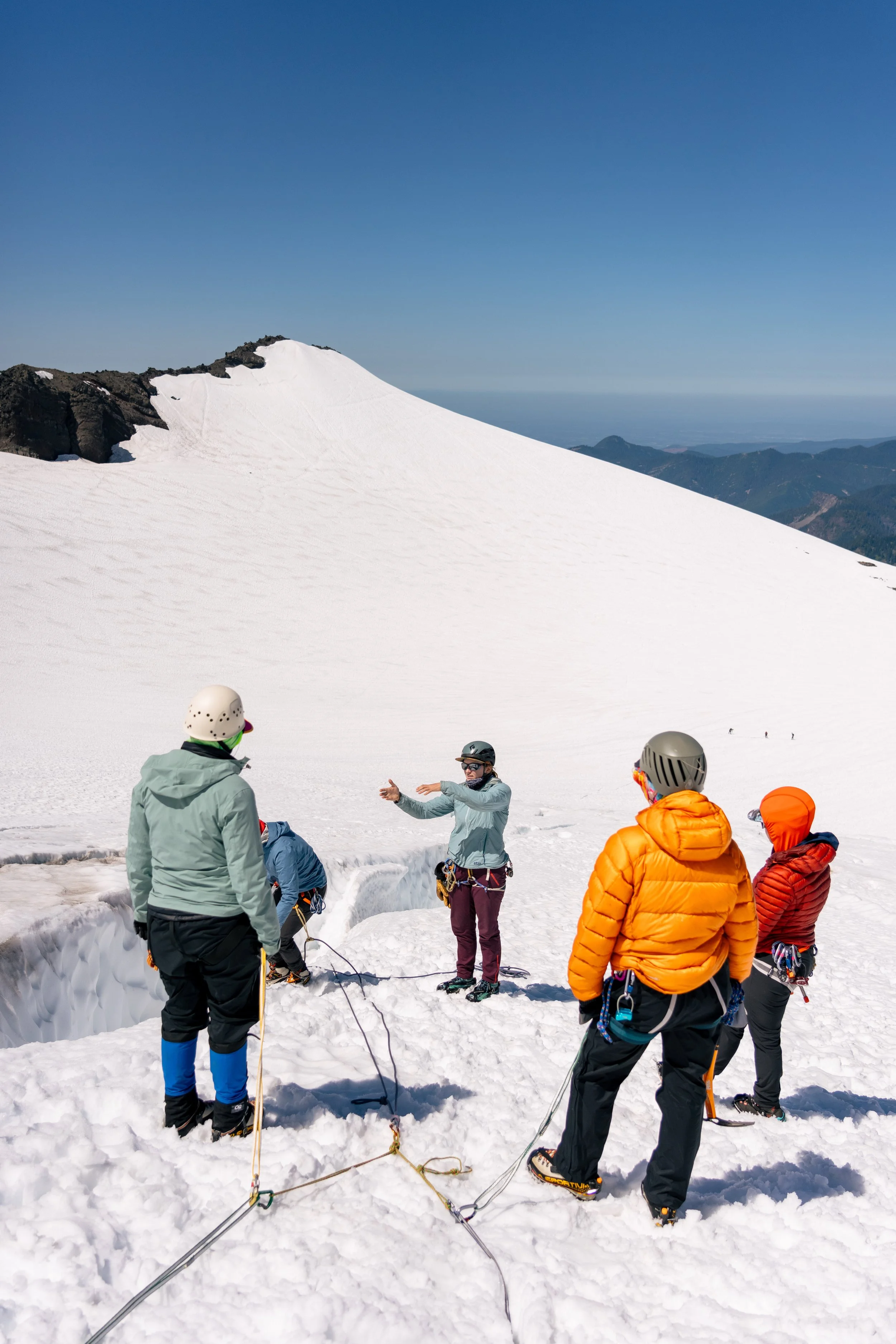
5-Day Mountaineering Leadership Course
Komo Kulshan (Mount Baker)
Open to all

Join us for a 5 day immersive program, designed to deliver the education and experience you need to start taking on bigger mountains and glaciated peaks as an independent climber
Price: $1375
2026 Dates:
August 10 - 14
-
The goal of this course is to learn the essential skills in order to be independent in the mountains (and have loads of fun while doing it). This, in and of itself, is an empowering concept. This experience is not simply about scaling heights; it is about tapping into your inner strength and embracing the adventure of a lifetime, and just as importantly, opening doors for yourself to pursue mountain activities more independently in the future.
Every day is packed with learning new skills and deepening old skills. This includes a day of in depth snow school, crevasse rescue, and a summit push. If you have more questions about itinerary and curriculum, please keep reading.
-
Komo Kulshan (also known as Mount Baker) stands at 10,781 feet tall. There are several different routes and glaciers. We will either be going to the Coleman-Deming route, the Easton glacier climbing route, or the Squak glacier depending on route conditions.
Often times the route decision is not made until the day before the course, due to the changing nature of our mountains and weather.
Generally, courses in the first half of the season go to the north side (Coleman-Deming) and courses in the second half of the season trend towards the south side (Easton and Squak).
The routes are all comparable in terms of total elevation gain and difficulty.
-
Introduction to glaciology, native lands, and mountaineering
Crampon and ice axe techniques
Self arrest
Navigation and route selection
Glacier rope travel
Crevasse Rescue (2:1, 3:1, and 6:1 mechanical advantage systems)
Various anchor systems
Self ascending
Expedition style trip logistics: Cookware selection, tent setups, shelter options
Gear selection and packing
Safety and hazard assessment/management
Leave no trace principles
Mindset setting, breath work
-
Day 1:
Meet at a designated area, check all gear, and have introductions
Land acknowledgment
Discussions: Leave no trace, safety protocols, establishing a mindset for our time together
Hike in and set up our base camp for the course, and enjoy our first alpine meal together
Navigation and route selection
Day 2:
Extensively cover footwork in crampons, use of an ice axe, self arrest, and moving together on rope teams
Discuss gear selection
Knot school: Learn the most helpful alpine knots
Running protection and fixed protection
Day 3 (The order of day 3 and 4 depends on weather and conditions and are subject to switch)
Apply the skills we learned in the previous days, and go for our summit climb
Return to base camp
Group debrief and sharing over dinner
Time set aside for journaling, relaxing, and decompressing after a long day
Day 4
Crevasse rescue
Ropes and anchor systems
Return to camp, and celebrate our final night together on the mountain over a fresh meal
Day 5
Pack up base camp
Hike out and debrief at a designated location
** We usually complete our time together around 3pm in the town of Sedro Woolley (South Side) or Glacier (North Side), WA.
-
· Wilderness permits and guides· Tents
· Ropes, pickets, and group climbing gear
· Stoves, cookware, and fuel
· Breakfast and dinner
· Fun and excitement!!
-
After signing up for this course, you will receive an automated email with more information for your trip. This will contain a packing list, training suggestions, and route details.
One to two weeks before the start of the course, expect an email from your guides with more information about your meeting location and route.
Upward Transitions Institute holds a Temporary Use Permit within Mt. Baker-Snoqualmie National Forest and Mt. Baker Ranger District
“In accordance with Federal law and U.S. Department of Agriculture policy, this institution is prohibited from discriminating on the basis of race, color, national origin, sex, age or disability. To file a complaint of discrimination: write USDA, Director, Office of Civil Rights, Room 326-W, Whitten Building, 1400 Independence Avenue, SW, Washington, D.C. 20250-9410 or call (202) 720-5964 (voice and TDD).”



